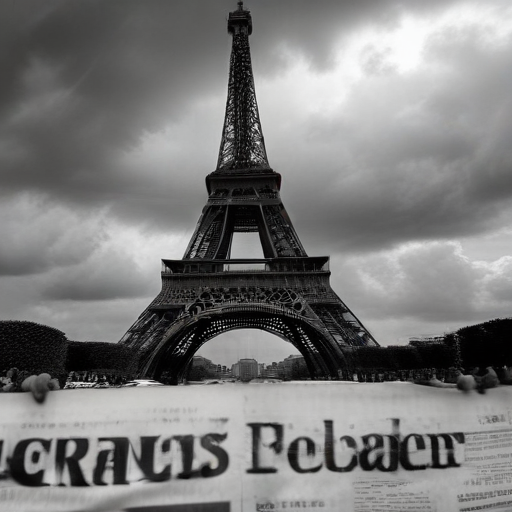In a significant political shift, French lawmakers recently united to pass a no-confidence vote that led to the resignation of Prime Minister Michel Barnier after just 91 days in office. This development marks only the second instance of a government being overthrown through a no-confidence vote in France’s Fifth Republic. Barnier’s government struggled with a lack of democratic legitimacy after the left-wing coalition’s success in the July 2024 legislative elections. The collaboration between Marine Le Pen’s far-right National Rally and left-wing parties to achieve this outcome underscores a fracturing political landscape in the country.
This political turmoil comes at a time when France is facing serious economic challenges, including a soaring national debt, an increasing poverty rate, and significant trade deficits. Many experts speculate that a resignation from President Emmanuel Macron could be on the horizon, although it remains uncertain if he will yield to growing pressures. Analysts predict this crisis will escalate, with calls for an early presidential election becoming more widespread.
In the midst of this political deadlock, commentators express concern regarding France’s ability to navigate crucial budgetary decisions, as the recent government collapse has exacerbated existing divisions within the Parliament. The design challenges of creating a stable government capable of addressing pressing national issues, such as rising public debt and social inequality, seem daunting.
Despite the turbulent political atmosphere, there is potential for positive change. The United Nations and other international entities may view these upheavals in a different light, possibly spurring necessary reforms in governance. Furthermore, with Poland looking to redefine its role in Europe amidst these changes, there is an opportunity for fresh leadership dynamics to emerge, which could enhance cooperation among European nations and contribute to a stronger unified front.
In summary, while the political landscape in France appears chaotic, there is hope that it could galvanize constructive discussions and reforms necessary for the country’s future direction. This could ultimately lead to a more engaged and cohesive European political environment, where countries work together more effectively to address their collective challenges.
